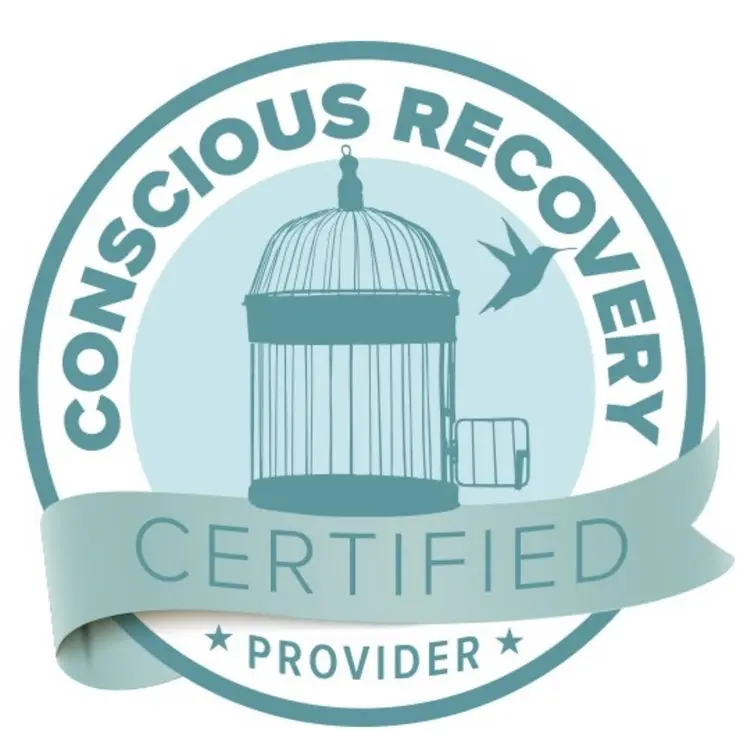Embarking on the journey to sobriety is life-changing. Incorporating holistic practices like yoga into your recovery journey can offer significant benefits, especially for women and female-identifying individuals who may also be healing from trauma or co-occurring mental health conditions.

At Monima Wellness, a women’s outpatient trauma, mental health, and addiction treatment center in San Diego, we offer yoga as part of our holistic treatment programs. This comprehensive and evidence-based therapeutic blend allows our community members to find balance, healing, and empowerment in recovery. Here’s why the team at Monima believes yoga is an essential part of the healing process for addicts and other individuals seeking recovery.
Interested in joining a treatment program that offers holistic practices like yoga, acupuncture, reiki, and more? Contact Monima Wellness today. Our admissions team is dedicated to guiding you through each stage of the admissions process.
Call: 858-500-1542 | Verify Insurance
Benefits of Yoga for Those Battling Substance Use Disorder
Yoga offers multiple impactful benefits for individuals struggling with substance use disorder (SUD) and in addiction recovery. Addressing the mind and body, yoga plays a vital role in supporting long-term sobriety and mental wellness, and studies show that it has a positive impact on symptoms like cravings and can even help prevent relapse. Below are key ways this time-honored practice supports recovery:
1. Nervous System Regulation
Addiction often leads to a heightened stress response, where the body remains in a constant state of “fight or flight.” This state can hinder recovery by increasing anxiety, emotional reactivity, and physical tension.
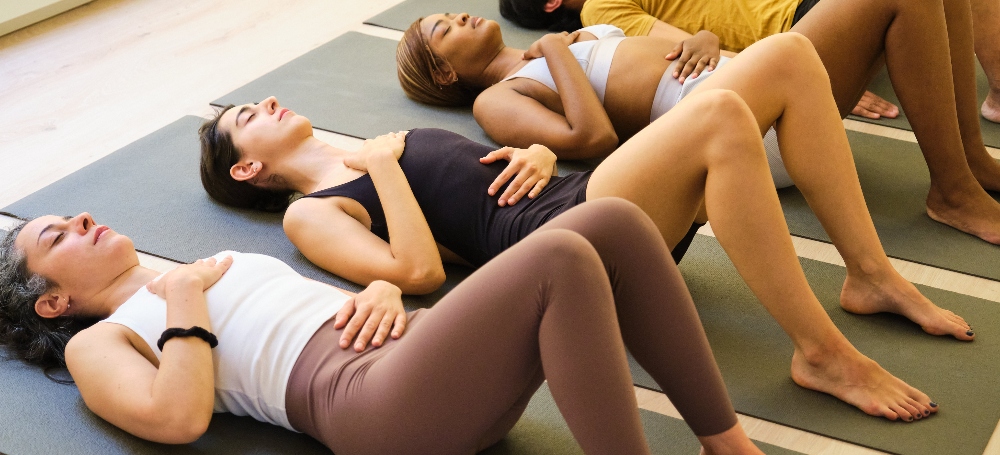
Yoga helps balance the nervous system by activating the parasympathetic system, promoting relaxation. This shift is essential for those healing from trauma and addiction, as it allows the body to calm down, rest, and enter a state of restoration. This regulation helps reduce anxiety and improves the body’s ability to cope with stress over time.
2. Effective Stress Management
Stress is a common trigger for relapse in addiction recovery, often driving individuals to return to substances as a coping mechanism. Yoga offers powerful stress management techniques and has been proven to reduce perceived stress levels in those struggling with addiction.
Mindful breathing (pranayama) and physical postures (asanas) practiced in yoga allow individuals to process stress more effectively. These practices help to reduce stress hormone levels, like cortisol, while promoting mental clarity and relaxation. For individuals in recovery, this can provide a healthier way to cope with everyday challenges, reducing the risk of relapse.
3. Emotional Regulation and Mindfulness
In recovery, learning to manage emotional triggers is critical for long-term success. Yoga fosters emotional regulation by enhancing mindfulness and awareness of the body and mind. One of yoga’s key benefits is its ability to activate the vagus nerve, which is responsible for regulating the body’s stress responses and emotional states.

By practicing yoga, individuals can cultivate a deeper sense of calm, safety, and self-awareness, which helps reduce impulsive behaviors and emotional outbursts. This mindful approach aids in managing cravings and emotional triggers, allowing for greater control over one’s reactions.
4. Restoration of Natural Dopamine Levels
Addiction disrupts the brain’s natural production of dopamine, the neurotransmitter responsible for pleasure and reward. Over time, substance abuse can lead to depleted dopamine levels, causing feelings of emotional numbness or dissatisfaction.
Yoga offers a natural way to restore dopamine balance. Through its calming and physically engaging practices, yoga helps stimulate the body’s natural dopamine production, offering a sense of satisfaction, joy, and emotional well-being without reliance on substances. This is vital for reinforcing healthy habits and creating a new sense of fulfillment in sobriety.
5. Physical and Emotional Healing Synergy
Yoga is unique in its ability to simultaneously address both physical and emotional aspects of recovery. Physically, it helps rebuild strength, flexibility, and balance, which may have been compromised during addiction.
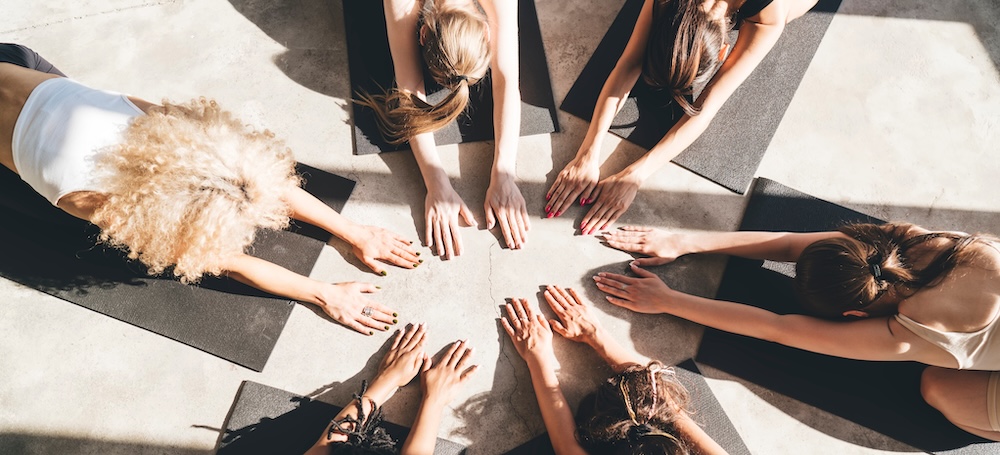
Emotionally, yoga encourages introspection and promotes emotional resilience by helping individuals reconnect with themselves in a compassionate, non-judgmental way. The combination of these effects allows for holistic healing, making yoga an invaluable component of addiction recovery programs.
Ready to experience true healing? At Monima Wellness, we integrate trauma-informed yoga into our comprehensive treatment programs, helping you physically and emotionally heal. Contact us today to learn how our personalized approach can support your journey to long-lasting recovery.
Call: 858-500-1542 | Verify Insurance
The Science of Yoga and Addiction Recovery
The healing power of yoga in addiction recovery is well-supported by scientific evidence. Yoga’s ability to affect the body and mind makes it essential for holistic treatment.

Let’s explore some scientific mechanisms behind why yoga is so effective in supporting recovery:
1. Neuroplasticity and Brain Rewiring
Addiction alters brain pathways, particularly those tied to reward, motivation, and stress. Yoga has been shown to encourage neuroplasticity, helping the brain form new, healthier connections. This allows individuals to reframe their relationship with anxiety and cravings, supporting long-term recovery.
2. Autonomic Nervous System Regulation
While the benefit of nervous system regulation was discussed earlier, it’s important to note that yoga particularly influences the autonomic nervous system, which controls involuntary functions like heart rate and digestion. By activating the parasympathetic nervous system, yoga fosters a state of balance, which is critical for healing and reducing stress responses.
3. Modulation of Neurotransmitters
Yoga can modulate levels of important neurotransmitters such as GABA (gamma-aminobutyric acid), which is essential for managing anxiety and calming the brain. Studies show that yoga boosts GABA production, making it easier for individuals in recovery to manage anxiety and reduce the emotional highs and lows often experienced during detox and early recovery phases.
4. Inflammation Reduction
Chronic inflammation is common in those with substance use disorders, contributing to physical and emotional stress. Yoga has been shown to reduce markers of inflammation in the body, promoting physical healing and better mental health outcomes during recovery.

5. Improved Sleep and Circadian Rhythm
Addiction often disrupts sleep patterns, and poor sleep can hinder recovery. Yoga, particularly relaxation techniques like Yoga Nidra, has been shown to improve sleep quality and help regulate circadian rhythms. Better sleep contributes to mental clarity, emotional balance, and physical healing—all crucial elements for maintaining sobriety.
6. Psychophysiological Integration
Yoga promotes a deep connection between the mind and body, enhancing what is known as psychophysiological integration. This connection helps individuals better recognize and manage the physical sensations linked to emotions, cravings, and triggers, creating a more mindful and controlled approach to recovery.
How Trauma-Informed Yoga Supports Emotional Healing In Addiction
For many women in recovery from addiction and dual diagnosis, trauma is a core issue that impacts both the mind and body. Trauma leaves lasting imprints, often creating emotional triggers that make recovery challenging. At Monima Wellness, we incorporate trauma-informed yoga into our outpatient treatment programs, providing a gentle, supportive space where women can safely reconnect with their bodies and emotions without the risk of re-traumatization.
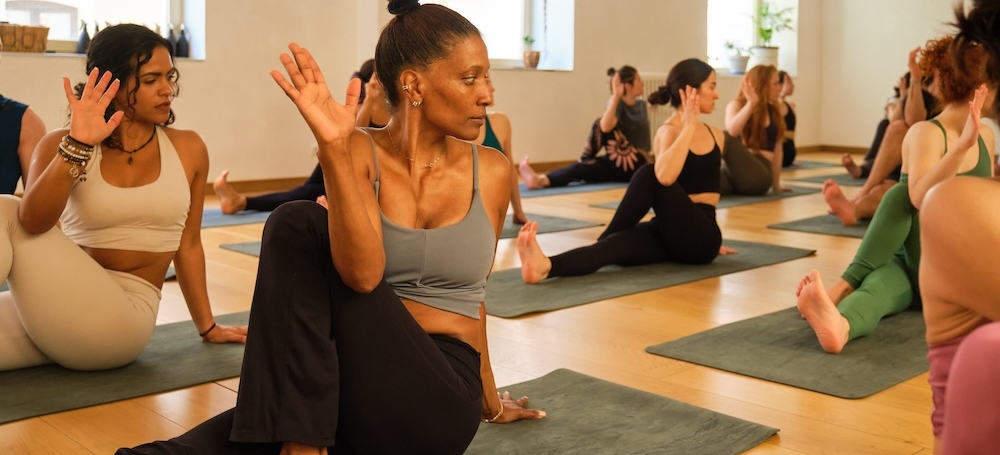
Trauma-informed yoga integrates mindful movements and breathing techniques to soothe the nervous system, reduce anxiety, and foster a sense of empowerment. These practices are designed to help women reclaim control over their physical and emotional well-being, making it a vital tool for healing.
By focusing on slow, deliberate movements and body awareness, trauma-informed yoga helps participants process emotions safely. This creates a path to emotional resilience and freedom, supporting women as they recover from both trauma and addiction. The approach emphasizes safety, choice, and trust, critical components in creating a space where women can heal at their own pace.
Learn More: Trauma-Informed Yoga at Monima Wellness
Yoga for Mental Health and Dual Diagnosis Recovery
Many individuals in addiction recovery are also grappling with co-occurring mental health issues, such as:
- Anxiety
- Depression
- Post-traumatic stress disorder (PTSD)
- Personality disorders
- Bipolar disorder
- Trauma
Yoga has been proven to benefit mental health in a variety of ways, highlighting its value for both addiction and co-occurring conditions. Because of this, Monima Wellness offers dual diagnosis treatment through our partial hospitalization program (PHP), intensive outpatient program (IOP), and outpatient program (OP) levels of care in San Diego. Our outpatient continuum of care is designed specifically for women grappling with addiction and mental health challenges.

Yoga plays a crucial role in our dual diagnosis treatment program, helping reduce symptoms of mental health disorders while supporting sobriety and being conscientious of trauma. The mindfulness practices embedded in yoga encourage emotional regulation, giving women healthier coping mechanisms to navigate the ups and downs of life without turning to substances.
Experience true healing — If you or a loved one is seeking addiction treatment that incorporates holistic practices like yoga, acupuncture, and reiki alongside conventional therapy, contact Monima Wellness today. A healthier, happier way of life is possible.
Call: 858-500-1542 | Verify Insurance
What to Expect from Yoga for Addiction Recovery at Monima Wellness
At Monima Wellness, our outpatient yoga for addiction recovery program in San Diego is tailored to meet the needs of each woman who walks through our doors. Here’s what you can expect from our unique approach:
- Customized Practices: Our yoga sessions are adaptable for all experience levels, from beginners to advanced practitioners.
- Trauma-Informed Approach: We ensure a gentle, empowering environment where women feel safe and supported throughout their practice.
- Integrated Care: Our yoga program is just one part of our holistic treatment plan, which includes evidence-based treatment and holistic healing modalities such as individual therapy, group counseling, Reiki, and acupuncture to support full-body healing.
- All-Women Environment: We foster a supportive, all-women space where women can focus on their healing without judgment.
Why Choose Monima Wellness for Yoga in Addiction Recovery?
Monima Wellness isn’t just a treatment center—it’s a community. Located in San Diego, our center is designed to meet the unique needs of women seeking recovery from addiction and mental health challenges. We specialize in trauma-informed care, and our programs are tailored to be person-specific, ensuring a truly unique and impactful approach to healing. Our yoga program is part of our larger effort to help women heal physically, emotionally, and spiritually.
You’re Never Alone With Monima Wellness

We know recovery can feel daunting, but at Monima Wellness, you don’t have to do it alone. Our program offers a supportive transitional living experience through our partnership with Ohana Recovery Residences, connecting you with a community of like-minded women on similar journeys. This inclusive, welcoming environment helps foster lasting connections and provides the encouragement needed for healing and growth as you restart your new, sober way of life.
Reach out today—you’re just one step away from a fresh start and a network of support.
Call: 858-500-1542 | Verify Insurance
Frequently Asked Questions (FAQs)
Is yoga good for addiction recovery?
Yes, yoga is highly beneficial for addiction recovery. It helps regulate the nervous system, reduce stress, manage cravings, and promote emotional balance—all key factors in supporting long-term sobriety.
Can yoga be used for recovery?
Absolutely. Yoga is often integrated into recovery programs as it fosters mindfulness, enhances self-awareness, and provides practical tools to cope with emotional and physical challenges during recovery.
Is yoga good for rehab?
Yoga is a valuable tool in rehab settings. It promotes physical healing, reduces anxiety, and helps individuals rebuild strength and emotional resilience, making it an effective complement to traditional therapies.
Is yoga an adjunct to substance abuse treatment?
Yes, yoga serves as an excellent adjunct to substance abuse treatment by offering holistic benefits. It supports mental, physical, and emotional healing, making it a powerful addition to conventional therapeutic approaches.
References
1. Greene DS. Yoga: A Holistic Approach to Addiction Treatment and Recovery. OBM Integrative and Complementary Medicine 2021; 6(4): 047; doi:10.21926/obm.icm.2104047.
2. Kuppili PP, Parmar A, Gupta A, Balhara YPS. Role of Yoga in Management of Substance-use Disorders: A Narrative Review. J Neurosci Rural Pract. 2018 Jan-Mar;9(1):117-122. doi: 10.4103/jnrp.jnrp_243_17. PMID: 29456355; PMCID: PMC5812135.
3. Singh N. Neurobiological basis for the application of yoga in drug addiction. Front Psychiatry. 2024 Apr 18;15:1373866. doi: 10.3389/fpsyt.2024.1373866. PMID: 38699450; PMCID: PMC11064691.
4. Woodyard C. Exploring the therapeutic effects of yoga and its ability to increase quality of life. Int J Yoga. 2011 Jul;4(2):49-54. doi: 10.4103/0973-6131.85485. PMID: 22022122; PMCID: PMC3193654.
5. Bhargav H, George S, Varambally S. Yoga and mental health: what every psychiatrist needs to know. BJPsych Advances. 2023;29(1):44-55. doi:10.1192/bja.2022.22
6. Singh, N. (2024). Neurobiological basis for the application of yoga in drug addiction. Frontiers in Psychiatry, 15. https://doi.org/10.3389/fpsyt.2024.1373866
